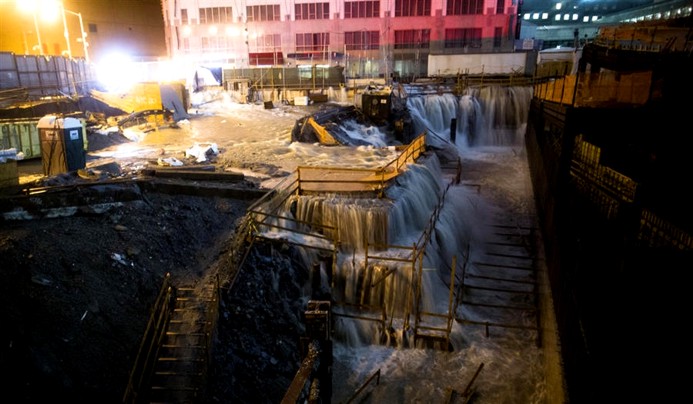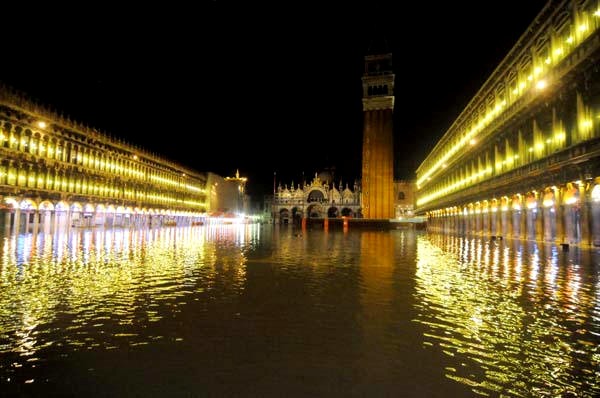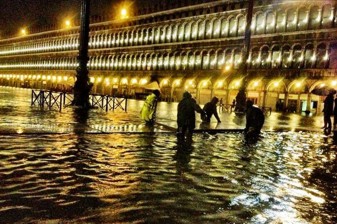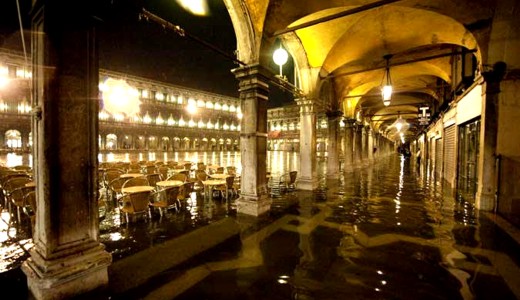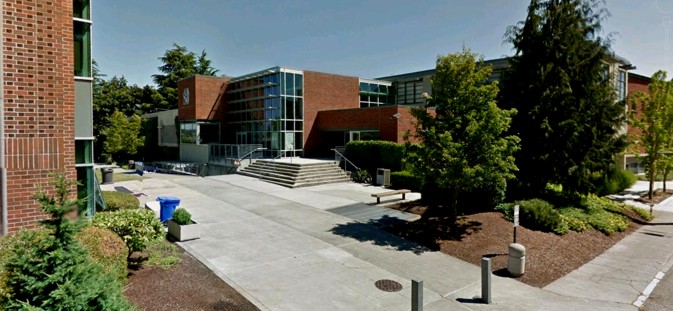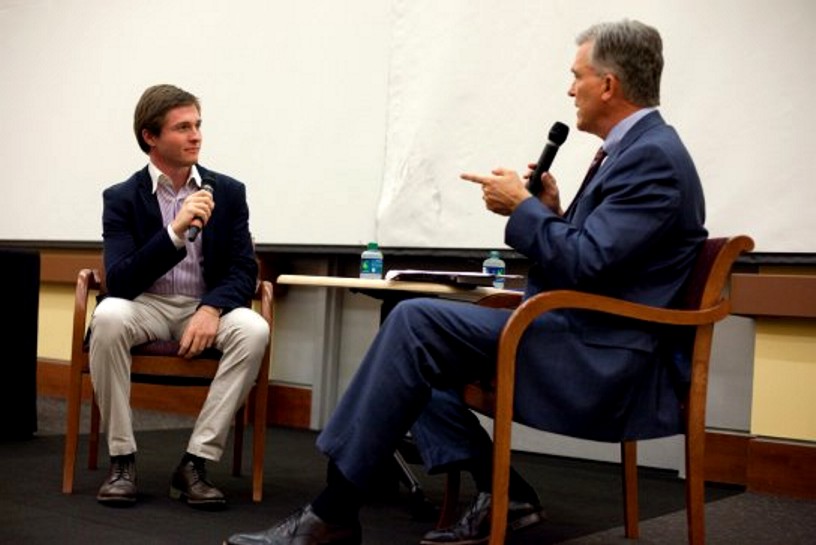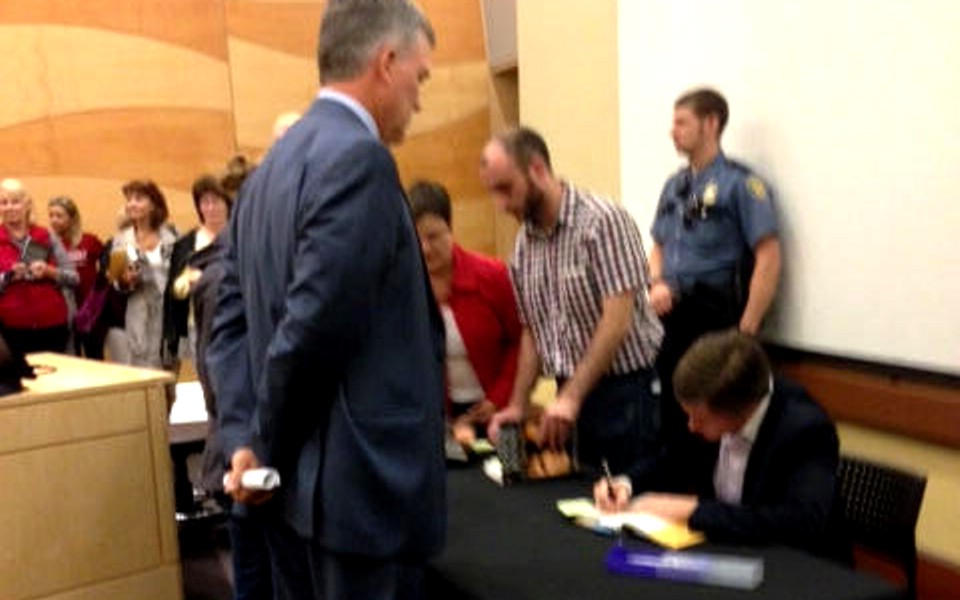
Category: The wider contexts
Saturday, March 16, 2013
The Oil Tanker Incident: Things Between Italy And India Become… Complicated
Posted by Peter Quennell

India and Italy have long been close allies but an incident a year ago perversely reverberates on.
We posted on it here and here with some excellent commentary from our Indian posters Sara and Chami.
Italy maintained that the shooting of two fishermen who the soldiers above had wrongly assumed were pirates happened in international waters, and the oil-tanker company offered to pay substantial damages to the grieving families, which they appeared at one point to have accepted.
But though the tanker was long gone from the port of Kochi, the soldiers remained under house arrest, and in the state of Kerala there remained a disposition to put them on trial though the central government told Kerala they had no jurisdiction. On the say-so of the Italian Ambassador in New Delhi that they would return, the soldiers were recently allowed to return to Italy.
Now it seems Italy doesnt want to send them back. In quick retaliation, the Indian mission to Rome may be in the process of being diplomatically downgraded, the Italian Ambassador to India is being prevented from leaving India, and the Indian Express sees a sardonic side to all of this.
To complicate the lives of the diplomats, Sri Lanka has arrested 53 Indian fishermen which it said were illegally fishing in its territorial waters, and is still holding 19 of them captive. And Italy is seeking to have a number of CIA operatives returned to Italy to stand trial there for kidnapping.
One bit of genuine good news is that piracy is at a five year low. Phew. Thanks for that one.
Saturday, March 09, 2013
Subject To Appeal, Ex PM Silvio Berlusconi Is Sentenced In Milan To One Year For Corruption
Posted by Peter Quennell
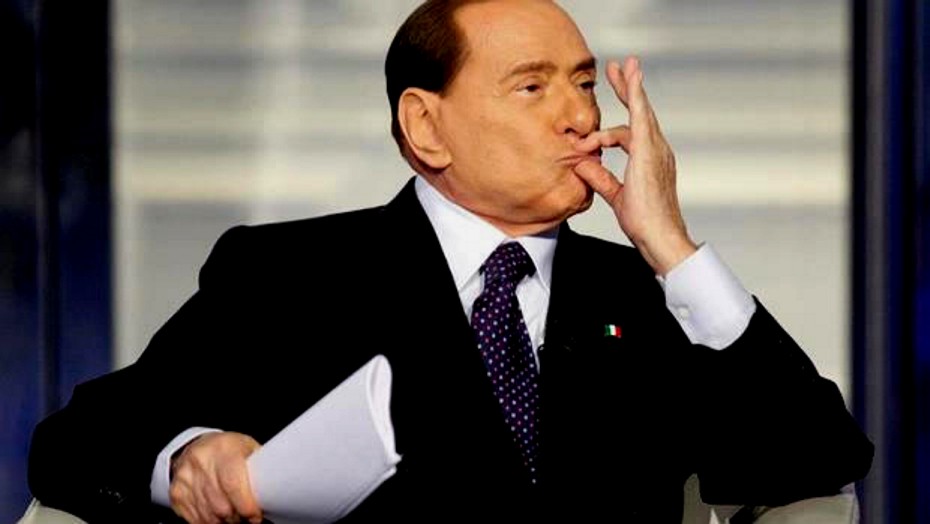
The New York Times reports on this, the first outcome out of three corruption cases..
The story is in line with many previous posts here on the popularity and the efficient and unbending nature of Italian law enforcement. This is a system that has had to contend with a string of corrupt politicians and three mafias, and is slowly but surely winning the wars against all of them.
Silvio Berlusconi, the former prime minister and dominant political figure in Italy, was convicted and sentenced on Thursday to one year in prison for his role in the publication of a wiretapped conversation in a newspaper his family owns.
The verdict, handed down in a Milan court, was the second conviction for Mr. Berlusconi, the leader of Italy’s main center-right political party, in the past five months. It promises to weaken his position further as negotiations begin later this month to form a governing coalition, after inconclusive national elections late last month in which his party, People of Liberty, ran a close second behind the Democratic Party.
After Thursday’s conviction, “it will be difficult for Mr. Berlusconi to have an institutional role in the next government, either in the Senate or in any other Italian institution “” he’s out of the game,” said Sergio Fabbrini, director of the school of government at Luiss Guido Carli University in Rome. “But in the Italian public opinion, there won’t be any difference,” he added. “The country is already divided between those who think he is a criminal and those who think he’s a victim. It’s been that way for 15 years.”
Monday, January 21, 2013
An Overview From Italy #2: Current Perceptions In Italy, Justice Perverters Fail, Mignini Vindicated
Posted by Machiavelli
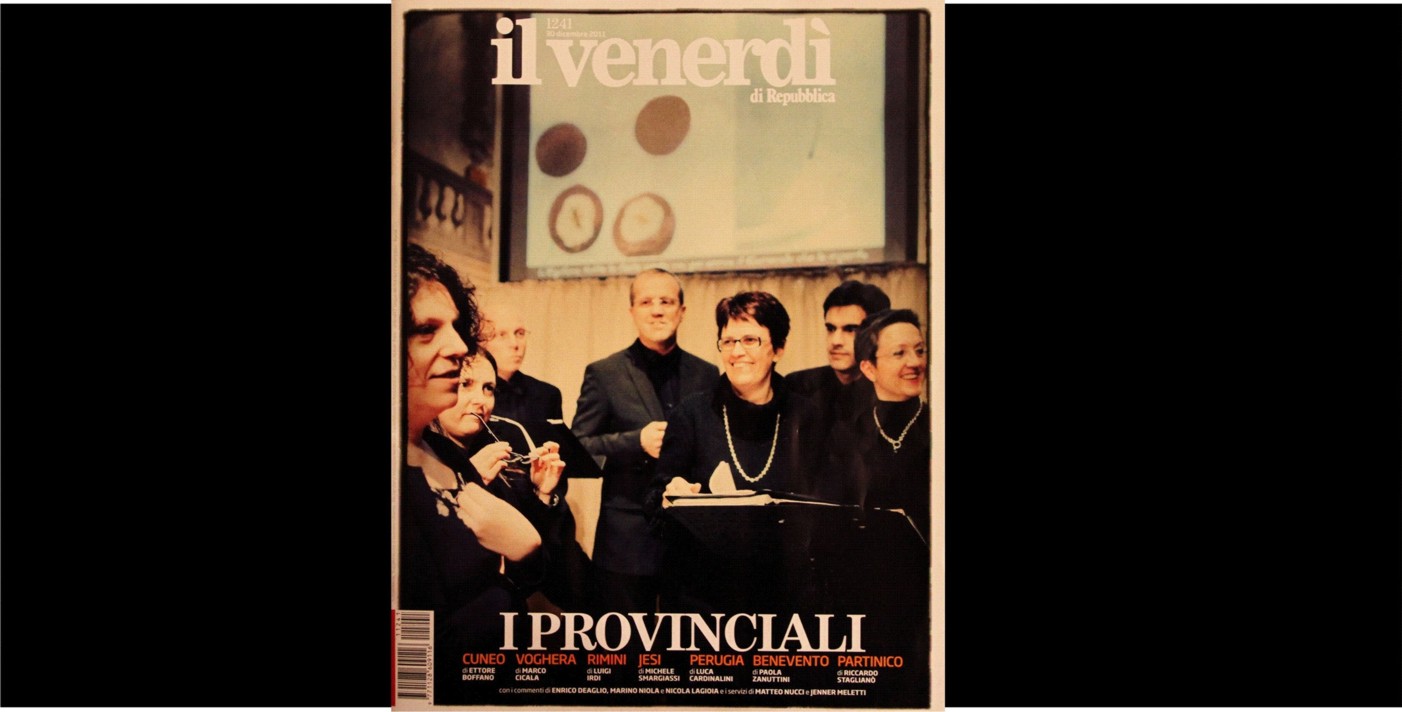
My previous report on the bad news remorselessly building here for the defense was on the Procura Generale appeal to the Supreme Court.
One year ago ““ between the end of December 2011 and beginning of January 2012 ““ there were only rare idle comments in the Italian press about the Meredith Kercher case, more or less sarcastically noting the “suspicious” circumstances of the Appeal trial. I recall how a mention of the topic was dropped into the last number of “ll Venerdì” of 2011.
“Il Venerdì di Repubblica” is the weekly magazine issued together with the newspaper “La Repubblica” (thus probably the most read magazine in Italy).
The cover theme of that week was provincialism ““ or better “the provincials” - the adjective used to assemble a sample of seven little cities (Cuneo, Voghera, Rimini, Jesi, Perugia, Benevento, Partinico), picked from different regions, and taken as examples on the theme, that is stories of “local colour”; what goes on in small “provincial places”. A few characters and stories are brought in to depict the local life of each place, and the voices of local authors adds something about the places.
The article about Perugia (at pages 62-68) was by Luca Cardinalini. In that number of Il Venerdì, having stories of “local colour” as weekly theme, there were shades of ironic tones for each city, often through the voice of local intellectuals. As Perugia is described, the Meredith trial is quickly recalled among its local stories; the reader can’t miss how this is viewed as in connection with another most remarkable feature of the city, that is Masonry.
According to Luca Cardinalini and Enrico Vaime, Masonry is called a “Specialty” of Perugia, like chocolate. Local author Enrico Vaime intends to convey the people’s perception about shady powers existing in the city, about a local environment saturated by plots and informal powers, as something behind recent strange judicial decisions such as the Hellmann verdict and the apparent dropping of the Narducci case. The widespread belief of Perugians that the Public Minister (prosecutor) is the righteous one shines through the words of Enrico Vaime.
Also notice how racism appears to be another key perception about the verdict. Quality media press in Italy has a typical style of understatement. This comment hints that it seems obvious that the Appeal was a racist verdict - and it was “expected” that they would find a way to blame the black one and the outcast.
Some of Perugian “provincialism” seems to include a very narrow localism of Perugian identity: a person from Orvieto is reported to be called “a foreigner” ; but this is because the cultural viewpoint is based on the assumption of a personal knowledge of all people. In among this, there is Vaime’s knowledge about how rooted Masonic tradition and power is in the city, in a scenario of “brotherhoods” and “tribes” (the article includes a photo of the most known “Masonic” monument in Perugia: the gryphon or griffen ““ the emblem of Perugia ““ grabbing a toppled Pope’s Tiara in a sign of rebellion).
The report by Vaime is objectively correct : the concentration of members of Masonic lodges in Perugia is the highest in the world, about 5 times the national average of Italy (which is anyway very high).
In Vaime’s wording decent people in Perugia are ‘Christians’ or ‘Communists’ ““ these are the names he uses to address the main categories he sees as “good” people, two transparent moral systems. He devolves skepticism toward the less transparent allegiances, the murky and informal connections to powers.
I believe these perceptions from one year ago, in this colorful article about Perugia, should be most interesting to the readers of this site.
The first part of the article on Perugia is not that interesting - it speaks mostly about a local character named Ivano Massetti, nicknamed “Savonarola of Umbrian football”, the director (“boss”) of a local TV network and leading showman of his own soccer talk show. I skipped this first part with depictions of local folks, and get to the point at p.66 where the Kercher case is first mentioned.
This is my translation of the article from this point:
[”¦](p.66 line 17):
As Enrico Vaime ““ a 100% Perugian, a writer, and among many other things fiercly provincial ““ already knows: “Only in Perugia do you hear people saying “actually Tizio [random guy] was not a native from Colombella, but from Piccione”, which is three times further”. And when his grandfathers (farther of his father) bearing the same name Enrico Vaime, moved his formal place of residence [to Perugia] from Spello, on the official documents they wrote “emigrated to Perugia and married to a foreigner from Orvieto”.
The roots are extremely deep. “Still today” Vaime says “when I say to my family “we go back home”, I mean here, in Perugia, where I have not owned a house for decades. And I still call the roads and shops with the names they had when I was a child, even if now the owners are foreigners, from Shangai or, as I say, from Terni”.
Vaime is cross with the bad reporters who described Perugia, in the Meredith murder case, as a capital of corruption and vice: “An invasion of charlatan journalists who, as they believed they were visiting a remote and lost province, they painted it as a sort of Chicago on the Trasimeno Lake”.
[The fact] that no Perugian was involved in that sad story, to them that was an irrelevant detail. And the trial ended just the way many Perugians expected: a black guy first wrongly put in jail, another black one convicted, the two white, good-looking, wealthy and well defended young people, free.
So it was that the Public Minister Giuliano Mignini became a target. He’s a Perugian whom the Perugians know as the dominus of the other judicial case ““ this also is, yes, entirely local ““ about which everybody talks and knows, but always in a low voice: the death of doctor Francesco Narducci, the one suspected of having ties to the crimes of the Monster of Florence. From the judicial point of view that was - by half ““ just another hole-in-the-water [a failure] for which some critics have hastily put the blame on some alleged lunacy of the public minister.
But”¦ however”¦ meanwhile, this [Naducci] corpse-swap was indeed found to have been for sure, a kind of unique case in the criminal history of the country. And, for what concerns the recent acquittals of those characters involved in this death, well, after almost a year and a half we are still waiting for the verdict motivations. All of the suspects were esteemed high-class professionals. That’s a perfect mix of strange deaths, sex, lead-astray investigations, and Masonry; this is in the city with the highest number of Masonic lodges in Italy.
Vaime sighs: “Masonry is something alien from me, but I have many friends who are in it. In Perugia it works as a compensation chamber for various powers, but also as an effort for the surge of the spirit to many decent people. Masters, masons and “33”, but all of them decent Perugians”. Masonry is considered a local specialty, just like the bruschetta or the Etruscan arch.
“One day you find out that that mediocre employee of your acquaintance, or the one who performed an incredible career in the public administration or in politics, is a “˜son of Horus’. Then you either laugh, or you slap yourself on the forehead just like saying to yourself “Wow! [how could I ] think about it!”. “That travet* [*a generic mediocre opportunist employee], too”
Vaime says “to me it is a strange Perugian, with little interest for the Egyptian god compared to his covet for entering inner circles of a certain world. Their internal motivation is “I want to see how the lords sit at the table”. But in there [Masonry], you see, there are also good Christians and good Communists; as has always happened in this province, which has the art of living together in its genes”.
[”¦. ]
This month ““ Jan 2013 ““ the Italian press returned to the topic of the case again in a few brief articles. This time it was because of Sollecito’s book.
After Maurizio Molinari’s report from New York on the book in September, and the busting by Bruno Vespa on Porta a Porta of Francesco Sollecito, who ended up openly contradicting his own son’s statements, another hint appeared in the local press about what is cooking up backstage.

This article in Perugia Today has a neutral take, but the same understatement and kind of vagueness as it anticipates that something very likely will happen.
What I find most delightful is the quotation marks in the title around the word “author” ““ journalist Nicola Bossi doesn’t believe for a moment that Sollecito actually wrote the book:
Meredith Case: “author” Sollecito at risk of criminal lawsuit
The recounts about an alleged negotiation in order to pin the main charges on Amanda Knox, and unproven violence by the Perugia Police are under target. Mignini is considering criminal lawsuit.
Written by Nicola Bossi ““ Jan 4. 2013
The Meredith case is not closed, and this despite books and movies almost tend to drop it after the acquittal in second instance of Amanda Knox and Raffaele Sollecito - who were convicted in first degree for the murder of the English girl that took place in Via della Pergola.
On upcoming March the 25th the Court of Cassation of Rome will have to decide on the request for a re-opening the trial, submitted by the Procura with the authorization of Public Minister Giuliano Mignini.
In the environment of the magistrates there is confidence about a [guilty] verdict that many ““ in Italy and in the USA - have heavily attempted to discredit. But from the same environments around them, they talk about a greatly serene Mignini making assessments about the next strategic moves, following the attacks directed against him ““ and against those in Law Enforcement who cooperated with him ““ contained in the book by Raffaele Sollecito.
An upcoming criminal defamation lawsuit is becoming more and more likely every day, especially about some particular paragraphs. The material published by Sollecito has already resulted in discussions and clamor above all about claimed negotiations [with the prosecution] aiming to shift the blame onto Amanda alone, to be rewarded with his immediate release.
But there are also accusations against the Police about violence during his interrogations. “If you dare get up and walk, I beat you up in a bloody pulp and I kill you. I leave you in a pool of blood”. This is what you read in the book “˜Honour Bound’ issued in the US, as what Sollecito attributes to the Perugian officers.
“They wanted me to lie so they could frame Amanda”: this is the premise of the claimed negotiations claimed to indirectly involve Mignini too, which he always denied. Allegedly this would have been enough to get [Sollecito] out from prison soon, leaving the American woman in trouble.
So, these are grave accusations which Mignini apparently does not intend to let go unpunished. The criminal lawsuit is likely to be filed earlier than the date of Cassazione [25 March].
Another small piece of news is this article below published in Leonardo and written by Valentina Cervelli:
It seems basically a “commented” version of the Perugia Today article. Cervelli adds a few polite lines on her own thoughts in this piece, published on the Bbooks page of Leonardo,it; this is my translation:
Is Raffaele Sollecito going be sued soon for “Honor Bound”?
By Valentina Cervelli - 6. Jan 2013
Are there troubles in sight for Raffaele Sollecito? His “Honour Bound” book is going well in the United States in terms of sales, but here in Italy it might be soon result for him in a lawsuit for defamation by the Law Enforcement forces and by the Public Minister Giuliano Mignini.
As we know already, in Honor Bound ““ My journey to hell with Amanda Knox and return Raffaele Sollecito has reconstructed the whole judiciary story from his point of view, telling in his autobiography what [he says] is his own truth.
On March 25 Cassation in Rome will decide on the [prosecution] request for the re-opening of the trial submitted by the Procura authorized by Giuliano Mignini, after the acquittal in the second instance of the two main accused, Sollecito and Amanda Knox.
The young woman has returned back to her country and we bet it’s going to be difficult, if not impossible, to get her back in our country even in case of retrial after Cassation and a possible conviction. But lets leave aside this possible dispute and lets focus on the book. In Raffaele’s book Mignini is iimplicated because he reportedly comes out discredited. In the material published by Sollecito in his book he even talks about alleged negotiations in order to blame Knox alone, obtaining in reward a quick release.
And what about the allegations of Police violence during interrogations? Of course we don’t get into the merits, but it seems obvious that parties that may be considered offended would tend to launch a counter-attack to defend their dignity and their work. At the moment no lawsuit has been submitted. But with much probability that will be done before the decision of Cassazione.
By now we can only wait for the publishing of the book in our country, in order to assess with our minds what Raffaele Sollcito has written and the “hot” material published in his made-in-the-US autobiography.
By the way; one thing Valentina Cervelli might get wrong is the purported good sales of Sollecito-Gumbel’s book.
The Amazon.com site is reliable as quick indicator of a product’s success; the price of a new copy of “Honor Bond” on Amazon.com is now $ 3.51 (last week it was 3.76; the cover price is $ 24). It suggests sales are not quite as expected. The drop speed is significant if you consider that the book has been out for only four months.
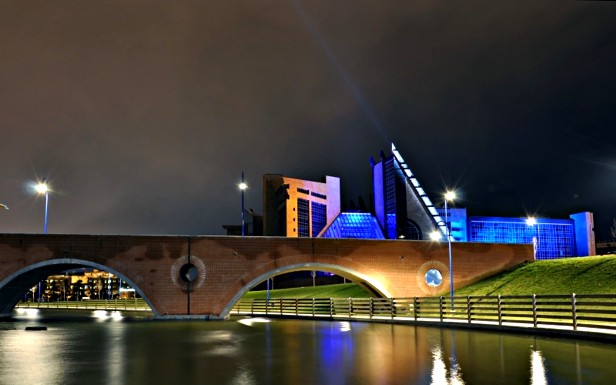
[Above: the Florence Palace of Justice]
While many honest magistrates seem to be working in Florence, there is still some strange behavior by one or two people in the Florence prosecution office.
Iin particular by the chief prosecutor there were some unexplainable decisions. As people reading this site know, Giuliano Mignini and Michele Giuttari were convicted (of some of the charges) in the first degree trial in Florence.
The motivations document was disconcerting because: besides the proof of their innocence on the main charge, what was described as the evidence on the remaining charge constituted extremely weak and vague arguments for what was claimed about Giuttari, while they were totally non-existent about Mignini.
In the second instance appeal as we know the court completely crushed the trial case.
The case against them collapsed not because of a technicality, as the FOAs falsely claimed. In the figment of their imagination the Knox supporters erroneously thought that the Florence court had an “option” to overturn the case, to find Mignini and Giuttari innocent, but that they instead decided to pass the judgment on to some other tribunal.
The pro-Knox believers are probably also ready to believe blindfolded that there was some kind of evidence against Mignini.
The Knox believers are wrong. What in fact happened in Florence is something almost unique in a judge’s career. The first remarkable event was the decision by the Florence court of nullifying the first degree verdict. They did not simply overturn the verdict (neither change, or “reform” it as we say) since an overturning would imply acceptance that a previous verdict actually existed and was legitimate.
The cancellation was in fact an in limine act about the validity , which does not require an assessment about it correctness. The court went way beyond. In fact they nullified the whole trial, not only the previous one in terms of judgment, but also the preliminary hearing, and the indictment; and even the request of indictment.
It is a legal outcome not comparable to a simple change or overturning because it is a ruling that the whole proceeding was illegitimate from the very roots. The investigation itself of Mignini and Giuttari was declared illegitimate.
If elements were found for the opening of an investigation, the prosecutor would be entitled to carry on their duties, though the investigators should be from another territory. This is important because the Florence court found evidence that people from the same office were involved in cases against Giuttari and Mignini, both as offended parties and as prosecutors.
Because of a basic conflict of interest, the local prosecutors were incompatible and the Procura of Florence had no jurisdiction. Not even Genoa would be compatible.
Florentine prosecutors therefore had no right to bring cases against Mignini and Giuttari. The investigation files now must now be sent to the competent jurisdiction ““ where they should have been sent from the beginning ““ which is Turin; there other legitimate prosecutors will decide if and how there is anything to investigate about, and if there are any charges to bring against anyone. The Florentine trials should have never taken place. The court ordered that the legitimate investigators are the Procura of Turin.
In addition, they also ruled that the court of Florence would be an incompetent jurisdiction in any further possible case that stems from that investigation: since the competent prosecution is Turin, in case elements for the indictment of anyone for any charge are found, in the future, everything should go to a court in Turin ““ this, only if there will be any charge to bring to court .
This decision in Florence was a total debacle for the Florence prosecutors. It is in fact “politically” much worse than an overturning of a verdict. It is not just a like a different conclusion on the merit, it is the decision to take away even the investigation from them, a kind of implicit censure of their work as highly illegitimate.
But at this point in the procedings, something even worse and even more strange happened. The Procura of Florence did something even more unusual, in fact unprecedented as far as I know.
Apparently the Florence prosecutors are not happy at all to pass the investigation file on to Turin. For some reason they seem instead to want to do unnecessary and irrelevant hard work instead. The Florentine prosecutors impugned the decision and revisited this at the Supreme Court against the Florentine judges.
This step is almost unheard of because the decision of the Florence appeal court is of a type that manifestly cannot be impugned at the Supreme Court. The recourse is obviously going to be declared inadmissible. If that submission was done by a private citizen, they would get a heavy fine for that.
Here it is a power in the Florence judiciary branch making this inadmissible move; for unknown reasons.
I’d like to know the real motive behind the latest Florence move, the only effect of which can be a waste of time (and money), a delay, of at least one or maybe two more years, which only makes the failure of the whole proceeding against Mignini and Giuttari more likely due to lapse on an expiration terms.
I say “I’d like to know” but in fact one motivation stands out as obvious: the whole proceeding against Giuttari and Mignini, from the first bringing of the charges at the lower courts, appeared as having a wasting of time among its purposes.
One practical effect - maybe a practical purpose - of pushing the charges against Mignini, was taking the file about the Monster of Florence case links with the Narducci case away from Perugia. By this move, the Florentine prosecutors managed to factually put their hands on the Narducci-MoF file and remove it from the investigating powers in Perugia.
Another effect of this was delay. Now this latest move looks as if its purpose were to delay, as much as possible, the transfer of the legal documents to Turin.
What is the ultimate event that, by all this, they seem to be seeking to delay? I can’t know for sure, I can only guess; in fact, I have only one answer, which also stands out as something obvious for those who know a bit of the backstage:
Giuliano Mignini is not an ordinary magistrate, he belongs to the Anti-Mafia Territorial Division of Umbria, and recently was selected for a further promotion by the Supreme Council of Magistrates.
In fact what is delayed is the advancing of Mignini’s career: in fact he has been already promoted to a directive function; but, by the rules, his taking the post was frozen while awaiting the outcome and conclusion of the Florentine prosecution.
Prosecutor Mignini is de facto already functioning as a prominent Magistrate in Perugia and considered as such; but formally he has not been given the directive power. Several people ““ among them Spezi and a number of his journalist friends, but possibly also other much more important people too ““ are likely not at all eager to see Mignini awarded further power.
About the latest endeavor by Raffaele Sollecito, who became liable for criminal defamation by writing false allegations about Mignini and others in his book, I expect - as logically unavoidable ““ that several powers and subjects will basically have no option but taking legal against him.
There will be a strategic necessity to doing this in order to prevent extradition issues in the future, but also, above all, on principle, because Sollecito made false claims about public institutions that needt to have their names cleared. Considering the kind of allegations against the judiciary as an institution, and considering that Mignini is a judge of the Anti-Mafia Division, this is the kind of lawsuit that I see as likely to be submitted on a national level, in Rome.
If that is the case, it would not be the only strange thing that the courts of Rome will deal with.
It seems like there is a kind of “curse” on proceedings related to the Narducci case. All sections of the Supreme Court which have been asked seem to have attempted to declare themselves “˜incompetent’ about re-opening the cases related to the Perugian doctor. The Cassazione is a huge office with a hundred judges working there, but maybe not so many of them are eager to deal with this case.
This could be only a coincidence. It only brings up to my mind, through a free association of thoughts, a more generic question ““ a personal question of mine ““ that is whether the words “Masonry” and “Politics” have an echo in Roman corridors too.
*****
Finally I want to add another significant piece of Italian news.
The news a week ago was that the Procura of Florence is investigating a possible corruption/mafia plot involving construction enterprises and politicians that revolves around the building of a new high speed railway in Florence.
Some 31 people are being investigated and among them is the former governor of Umbria. A huge drilling machine ““ nicknamed the “Mona Lisa” ““ used to dig subway tunnels in Florence was sequestrated by the Procura.
In the last couple of years Perugia’s prosecution office had a main role in fighting political corruption, but it seems that the Florence Anti-Mafia division is also active, just as it was in the times when the prosecutor Vigna worked with them.
Vigna was the one who first evolved the “secret sect” scenario in the Monster of Florence case, raising unexpected problems among the Procura staff.
Monday, December 10, 2012
Italian News Through February Will Be Dominated By A Surprise Election
Posted by Peter Quennell

[Above: Pier Luigi Bersani, the probable next prime minister of Italy]
Prime Minister Monti is leaving, with most of his reforms pushed through, after Ex-PM Berlusconi’s party withdrew support.
Berlusconi announced he would again seek to be Prime Minister but his flouting of law, slimy ethics and previous wrecking of the economy don’t exactly make him the front-runner.
The front-runner in fact is Pier Luigi Bersani, the leader of the center-left Democratic Party, who has said he will sustain the reforms his party helped Mr Monti put in place.
Italy doesn’t usually have primary elections but the other day it did and Mr Bersani really trounced a leadership bid by the young mayor of Florence, Matteo Renzi (image below).
Mr. Bersani, 61, who has been the secretary of the Democratic Party since 2009, ran as the favorite, with nearly the full support of the party apparatus and its elected officials. He easily defeated Mr. Renzi, winning nearly 61 percent of the vote.
But Mr. Renzi’s message of change rang forcefully with a sizeable chunk of the center-left electorate, with over one million supporting him. He also attracted a considerable number of mostly young center-right voters whose frustrations with Italy’s influential and pervasive gerontocracy obliterated party lines.
It is a message that Mr. Bersani may have heeded. Speaking to supporters on Sunday night, he said his greatest challenges were to change the center-left and to “prepare paths and spaces to give opportunities to new generations.”
Austerity as a precursor to strong growth had already been taking a lot of knocks as the evidence that it is a cure-all is pretty slim and it creates terrible unemployment. Center-left governments (as in the US) are doing well these days.
The IMF was once the grand inquisitor of the austerity movement but is increasingly inclining toward the Asian mixed model, in part because it is there the IMFs cash and leadership increasingly come from.
This might be quite a help to Mr. Bersani as he confronts harder-line EU leadership and bond markets.
[Below: Matteo Renzi who lost primary but may affect Italy’s direction anyway]
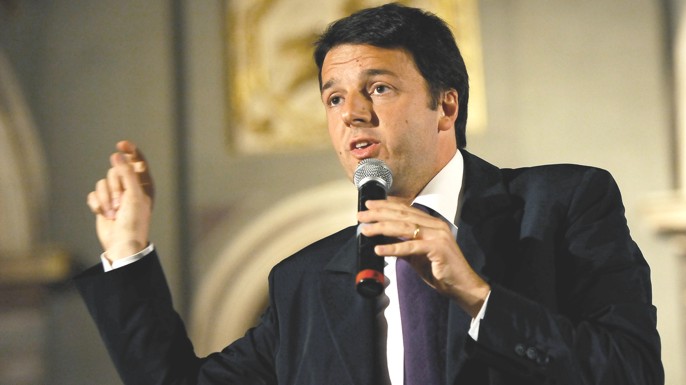
Wednesday, November 21, 2012
What New York And Venice (Surprise Surprise) Suddenly Find They Have In Common
Posted by Peter Quennell
1) New York
Plus more images down below in Comments.
2) Venice
Plus more images down below in Comments.
Saturday, November 17, 2012
Fervent Knox Supporter Tom Wright Seemingly Strongarms Knox High School Into “Honoring” Her
Posted by brmull
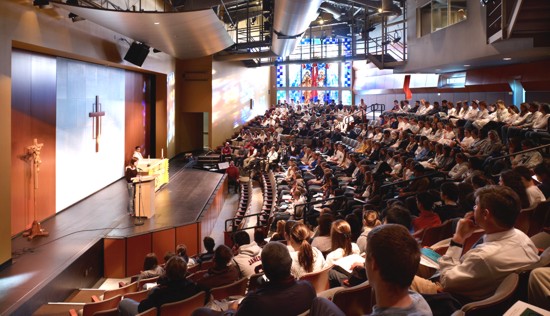
One thing is for sure. Not many schools - maybe none, ever - have accepted the creation of a scholarship to honor a convicted felon who, until the Supreme Court signs off, still stands accused of a very cruel crime.
Seattle Preparatory School is a fee-paying Jesuit Catholic school about a mile north of Seattle downtown, on the south side of Portage Bay from the main campus of the University of Washington. See Google Earth image at bottom. The school’s student role is estimated at around 650.
This announcement of a new scholarship in the name of Amanda Knox was recently published: “The fund, established by past parent [and co-founder of the advocacy group Friends of Amanda Knox] Tom Wright, will provide tuition assistance to students in need.”
Early in 2011 Tom Wright [seen reading a statement in a black shirt below] presided over a seriously loopy panel presentation at Seattle University, attended by a sparse crowd of about 35, which garbled all the hard evidence in the case and accused Italian officialdom of a number of crimes. See for example our reports here and here.

Tom Wright apparently had to kick in at least $50,000 for initial fund of the endowment, and he hopes that others will feel impelled to contribute as well.
For him this is certainly a labor of passion, since Knox with her book advance has more than enough resources of her own to set up an endowment if she wished, though to date we have seen no indication that Knox has made any charitable donations. Tom Wright seeks to make it look noble.
Sara [his daughter] and Amanda were good friends at Prep… With this fund our family wants to honor the courage of Amanda and her family. They displayed great dignity and fortitude enduring a wrongful prosecution on foreign soil. During years of unjust incarceration, the school supported Amanda through prayers and letters of support. Prep acted in the Jesuit spirit by seeking social justice and helped to win a fight worth remembering.
According to the announcement applicants should demonstrate the same “moral courage, strength of character under duress and a sincere desire to help others in need” that was supposedly exhibited by Amanda Knox.
Claims of “wrongful prosecution” and “years of unjust incarceration” are way premature, and contradicted by all these posts here.
“Moral courage” means taking a risk in order to do what one believes is right. Put aside for a moment the overwhelming evidence that Knox did murder Meredith Kercher. To what instance of moral courage could the school possibly have been referring? We don’t have a clue.
“Strength of character under duress” is pretty much expected of any upstanding member of society. But if there’s one person to which it surely doesn’t apply, it’s someone who was convicted of falsely accusing her kind boss of murder and wrecking his business. Billions of people have a “sincere desire to help others in need.” What makes Knox notable here?
Why else might Knox have been deserving of a scholarship in her name? It’s often said that she was an “honor student” but we wonder why she wasn’t wearing any honor cords at her graduation while other students had them. Author and Knox innocence proponent Nina Burleigh wrote that she “almost flunked” a religion class and was made to take summer school.
Knox has also been described as a “star soccer player.” The team she played for, however, endured “four bleak, losing seasons” according to Nina Burleigh’s book.
A few teachers and students spoke up rather listlessly and doubtfully for Knox after she was arrested and put on trial. Several are believed to have said that they were really not too surprised to hear of the mess she was in.

;Above: school president Dr Kent Hickey]
Is there ANY solid reason in the public record why Knox is deserving of this singular honor?
Tom Wright seems to have been motivated above all by his desire to memorialize “a fight worth remembering.” As much as anything else, that fight consisted of himself and a small group of like-minded diehard parents appropriating the school’s good name and resources for the purpose of a nasty, bigoted, defamatory, strong-arming campaign which played fast and loose with the facts.
Dr Kent Hickey [image directly above] became president of Seattle Prep two years after Knox graduated. He didn’t know her at all, and he may not even have met her face to face before the school accepted a scholarship in her name. Nonetheless, he described her to the media as “a good and thoughtful girl”.
He defended the school’s decision to raise funds for her by saying “We can’t pick and choose the graduates we help.” Yet Seattle Prep DOES indeed pick and choose, all the time. The school routinely punishes and expels students for everything from minor insolence to felonies. We can’t find any other instance in which it has held fundraisers for any alum—let alone a convicted felon—despite 8,000 alums living in the Seattle area.
And so Seattle Prep parents and onlookers might be forgiven for thinking that Dr Hickey is grasping at straws to justify his school’s very strange action.
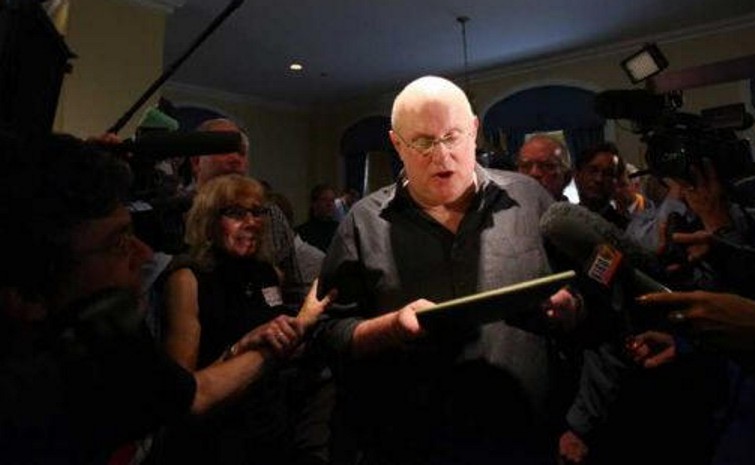
[Above: scholarship creator Tom Wright]
One angered parent commented on the PR campaign as follows in an excellent investigative report by James Ross Gardner in the local magazine Seattle Met late in 2010:
It is true some of the Seattle Prep families have allowed their students to support Amanda Knox. I do not believe that it is a 100%. A number of families have felt their students were pressured into supporting Knox without having a choice. That is not the Seattle Prep I knew from my years there as a student, nor is it what my husband experienced.
In our years as Prep students we were allowed choice rather than pressure. Because of the pressure, a number of family are not making their annual donations to Seattle Prep. I, for one, will be glad when the verdict in the appeal is handed down so perhaps we can all move past this event. Yes, event.
Seattle Prep has made it into an event and it takes away from the students discussing other news and issues. I do not wish Knox ill but my children did not go to school with her and do not know her. They have no idea if she is guilty. They are more worried about their close friend that is fighting cancer. It is time to un-focus on Knox. That’s just my opinion.

An angered alum of Seattle Prep offered this opinion to the reporter from Seattle Met:
I went to Seattle Prep, and did a full year in Italy. I learned Italian and the culture and saw a lot of Americans and Italians from the South that studied in Central and Northern university towns go a little nuts with all the freedom away from home.
Since I started following this trial, I could totally see how immoral behavior could lead to Amanda doing what she was accused of doing. Drug use, jealous roommates, and illicit sex are not a good mix, especially when people need money to support such habits. Amanda seems to have a lobby of easily-swayed-by-propaganda lab rats who bought in to the PR agency story and don’t bother following the case in its entirety.
I do not know the background of the Seattle Prep Principal, but I think he is getting in way over his head by getting into this case, and as a prior poster mentioned, he is putting a lot of pressure on people to get on the pro-Amanda bandwagon. So sick to sway young students’ minds on what to think.
This sounds like our post-modern decaying American mentality of choosing sides and voicing misdirected-emotions in forming opinions. The Principal does not sound like a well educated, worldly individual to put the Academic Institution and its students, employees and graduates in the middle of this fiasco. It reeks of “We Support Our Troops,” military campaigns to coerce and intimidate people into believing in a “popular” movement.
It’s a cruel joke that needy students who are not in a position to turn down financial aid will be forced to associate themselves with Amanda Knox and an ignominious campaign of bigotry, defamation and intimidation.
It is to them and the real victims, Meredith and her family, that Seattle hearts should go out.
Thursday, October 18, 2012
The Sunk Ship: This Week’s Closed Hearings Required The Conversion Of This Theater
Posted by Peter Quennell

The international media presence at the hearings in Grosetto matches those at the end of the trial and the appeal in Perugia.
But despite the conversion into a court of the large Theater Moderno shown here, the media is not getting to observe the hearings first-hand. The judges decided that they all have to wait outside.
So many passengers and relatives of victims wanted to attend to look Captain Schettino in the eye that they occupy all of the several thousand seats.
This hearing is similar to the hearing presided over by Judge Micheli in October 2008 to decide whether to remand Knox and Sollecito for trial. We should know in a few days if Captain Schettino and several other officers and company officials will face trial for manslaughter and other crimes.
Perhaps the most shocking fact to emerge from the reports prepared for the hearings is that once the ship was gashed in the side it was almost instantly mechanically incapacitated. If a brisk headwind had not stopped the ship and pushed it around onto an underwater shelf, it might have sunk in minutes, perhaps with several thousand drowned.
The captain has just been fired. He in turn is strenuously trying to shift the blame for the disaster to his fellow crew, many of whom had weak English and no Italian, and also to the cruise company.
The cruise-line business has now recovered but, as with the Titanic, a lot is being learned around the world about ship construction, emergency ship management, and the relevant law.


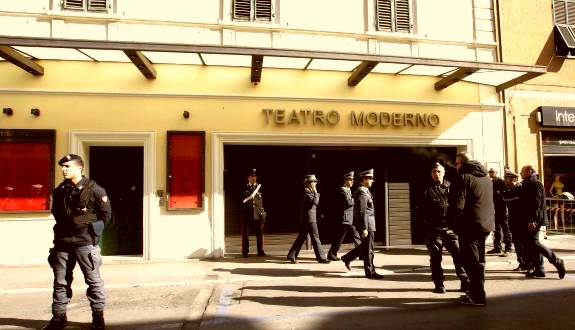

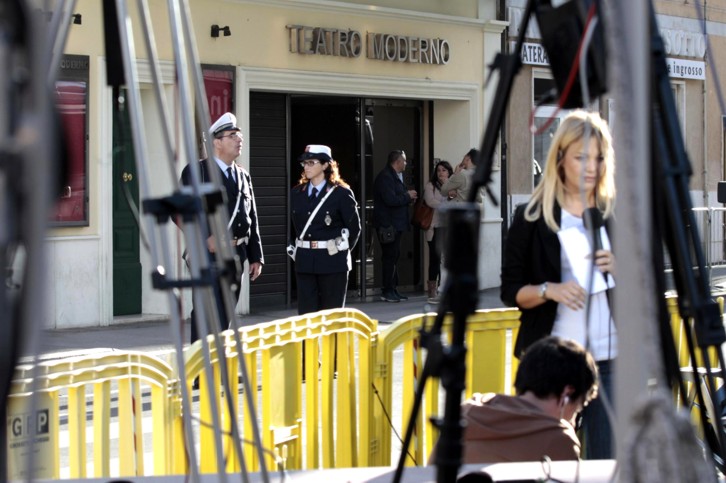
[Below: Captain Schettino, now fired by his company, arrives from Sorrento for the hearing]

[Below: Giulia Bongiorno reopresents some passenger and seeks a class action suit]
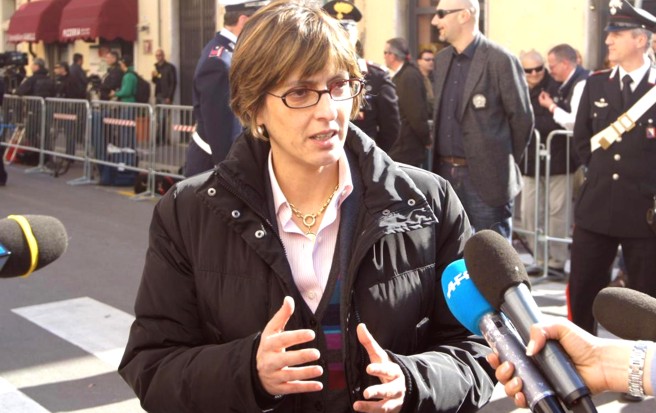
[Below: the ship now shows up on Google Earth. The rocks it hit are at lower left]

Monday, October 15, 2012
Professor Snape Saves 99.9999% Of Seattle From A Pestilent Raffaele Sollecito
Posted by Professor Snape

It has been awhile since I last reported on the perceptions of average Seattleites regarding the ongoing Meredith Kercher murder trial saga.
The recent arrival of Raffaele Sollecito in Seattle on the final stop of his book promotion tour provided an excellent opportunity to revisit this interesting and telling topic.
By the time Raffaele had arrived in Seattle it was well known that his book sales would ultimately be dismal, and that his father was overly busy in the Italian media strenuously disavowing the major claim of the book; the claim of illegal backroom corruption that is central to the book’s “Honor Bound” title.
And where Sollecito wasn’t lying outright, it had become painfully obvious that many of the new claims in his book directly contradicted statements he had previously made in his prison diary, or that can readily be found in other early sources of case information.

With this in mind, under protection of his invisibility cloak Professor Snape casually strolled into a cold and nearly empty auditorium on the University of Washington campus to find out firsthand exactly who would be attending such an event.
He found himself among no more than 60 aging and grayish FOA groupie types, most with Raffaele’s book tucked carefully underarm in high anticipation of a dynamic evening, as if a prized show horse were about to enter an arena.
It seemed that in spite of extensive national and local promotion the good people of Seattle had stayed away entirely! In fact, Snape observed one woman who showed up at the door in response to a local radio ad, but then walked away in disgust upon learning that she would have to pay a $5 entry fee if Raffaele’s book were not purchased onsite.
So as it turned out, this was going to be an evening for friends and family only, with absolutely no groundswell of grass roots support from Seattleites, or even Amanda Knox herself for that matter, who sent her mother and sister instead to honor the imagined savior, Raffaele Sollecito.

As a welcoming gift, Snape threw down the Permanent Sticking Charm causing an uncomfortable delay to the program. Event organizers began complaining of a Jinx in the audio or video equipment and one loudmouth attendee sarcastically suggested that the press photographer might be able to do a better repair job than the UW AV staff. This was followed by chuckles and chest pounding causing Snape to consider invoking the Reparo Charm, but instead he provided only his trademark sly sneer.
The show finally started. Everyone seemed to have their books out in hand, except for Snape who could be singled out because he was one of the few who possessed a half torn gold admission ticket. The audience eagerly awaited juicy and triumphant tales from the currently ex-con Sollecito, as if his narrative would be somehow bold and charged with ownership. However, things quickly stagnated into pathetic mumbling and unbelievably boring descriptions of irrelevant events.
One could easily assume that Raffaele was under the influence of a Babbling Curse, but he didn’t require any of Snape’s help whatsoever.

News anchor Dennis Bounds from Seattle’s KING 5 TV succeeded spectacularly in bringing the interview to an even lower than anticipated standard. Bounds declared at the outset that the two had spent a great deal of time the day before preparing for this supposedly spontaneous interview. At the beginning of the interview it seemed as though the audience was ready to reach out and pet Raffaele’s adorable made-over hair as if he were a poodle on a podium.
But all too soon his ho-hum responses caused even this adoring crowd’s anticipation to plummet like facebook stock values.
Bounds tried very hard to extract meaningful replies from Raffaele, but Raffaele remained unfocused and glazed over as if on some kind of stardom high; stupidly cheerful and starstruck. Bounds provided Raffaele with obviously rehearsed and leading questions from his cue-sheet, along with tips and reminders for answers when Raffaele stumbled or hesitated. At times Bounds even had to resort to guessing what Sollecito might have felt, when there was no ready response.

At times during the program a larger than life photograph of Meredith Kercher mysteriously appeared on the large screen above Bounds and Sollecito. This happened on three separate occasions, which became odder still because Bounds and Sollecito just kept right on talking, never once pausing to address or acknowledge Meredith’s presence.
Furthermore, you could hear a pin drop when this happened and the entire audience seemed to be frozen in a shock state.
A few heads looked pensively towards the event organizer; a woman in a red dress who ran swiftly up to the projection booth to erase the image. Heads turned again when Meredith’s picture came up a second time, while the UW AV crew in the back chuckled and snickered. After Meredith’s 3rd appearance before the crowd an ominous “power off” signal appeared on the screen and Meredith was gone; all the more strange because none of this seemed to have anything to do with the ongoing and terribly bland program.
Sollecito continued regurgitating shallow prefabricated answers, apparently borrowed from previous book signing engagements. His voice was in no way authoritative, but instead came across as low and unsure. At times he did not seem to recall the responses that he had been coached to provide. And then Bounds finally got around to asking Raffaele what he thought about Prosecutor Mignini and the home team audience roared with laughter, for the first and only time, as if they knew they were going to finally get what they came to hear.

Mignini could have been a topic that would get fur flying and put Sollecito into a much more animated mood. But no sparks flew. There were no gasps into the microphone, no fingers pointed or arms flinging in the air, and in the end nothing but a “Riddikulus” and mundane reply from Raffaele, “I do not know what Mignini thinks of me because Mignini never talked to me.” Bounds seemed taken aback and asked again about Mignini, but Sollecito was completely unable to offer any unkind words, which must have been a devastating letdown for this particular audience.
Bounds pressed Sollecito about the possibility his of coming to Seattle to live, work, and possibly attend the UW, but Raffaele seemed ambivalent while agreeing that it could be a possibility. Before wrapping up the interview Sollecito answered selected questions taken from index cards passed around the audience.
While this only served to extend the bore-fest, Professor Snape successfully inquired if Sollecito felt his book might have an impact on the upcoming prosecutor’s appeal to the Court of Cassation in Italy and if so, how. Sollecito seemed unable to provide his own coherent response and instead relied upon Bounds and the audience to first suggest, “yes, hopefully in a positive manner.”
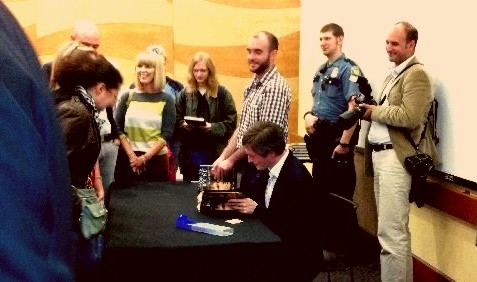
With that, Snape prepared to wrap up his investigative mission (with no book under cape) as three women approached, one after the other, insisting that Snape identity himself and the nature of his business at the event. When asked for his name by a crazy lady Number One, Snape defiantly asked back, “What is your name”, to which Number One replied, “I am a nobody”; truthfully spoken, as Snape’s Veritaserum cologne worked its magic.
Crazy lady Number Two demanded to know why Snape was taking pictures and Snape replied that it was because he found the event interesting. Number two pressed on, asking “Why do you think it is interesting?” Perhaps Number Two missed noticing that this was, in fact, a highly promoted book-selling tour and not a FOA backyard BBQ, or that the Barbara Walters top 10 most interesting people of 2011 included a subject mentioned conspicuously in the title of Raffaele’s book.
Unfortunately Number Two felt the need to make a hasty retreat, apparently under the influence of the Banishing Charm, before attempting to answer any questions from Snape.

Crazy lady Number Three was only slightly more civil and carried on in a polite but entirely too nosey manner, boldly asking who Snape was. “Oh, I have never heard that name before!” Number Three exclaimed under the influence of the Confundus Charm. Number Three herself had been taking countless pictures of everyone present all evening, explaining that she was a journalist for a small Seattle-area town. Honestly, though, she seemed much more like a bored hairdresser/plastic jewelry artist who might blog for an imaginary audience while waiting for imaginary customers.
As Snape departed he was nearly overrun by a couple of Seattle beat cops who were busy dragging out one of the attendees; a poor chap who lost his glasses and all hope of redemption during a defiant struggle. Following this one bit of excitement in an otherwise pointless evening, a flick of the levitation wand swiftly carried Snape away into the dark Seattle sky.
Wednesday, September 26, 2012
Kane Hall Book Promotion: Interviewer And Sollecito Panderer Dennis Bounds Drops The Ball Terribly
Posted by Media Watcher
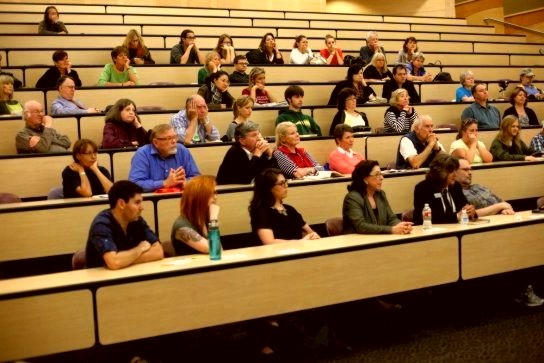
[Above: Amanda Knox’s mother and sister are to the right in the back row in white and red sweaters]
Sales statistics show that Sollecito’s book is selling terribly and light-years from recouping costs.
Tonight’s public interview showed one good reason why. A small mostly elderly entirely white crowd in Kane Hall heard Sollecito being allowed to blame it solely on the black guy. Not even his own lawyers did that. But there was no argument from the interviewer, no tension, no excitement, no sense of discovery or truth.
And the feeble questions moved on.
Dennis Bounds, anchor for KING-5 television news in Seattle, certainly demonstrated why he’s no journalist. After tossing softball after softball at Sollecito during an “interview” at UW’s Kane Hall and then teasing Sollecito that he should come to the UW as an exchange student, Bounds declared “You’re out of jail and you’re not guilty - which is the important thing.”
Untrue. Sollecito still stands accused of Meredith’s murder until the Supreme Court signs off on the case. The pandering Dennis Bounds was eagerly first in line to get a book signed by the accused. See the image at bottom.
The problem with most of the US media is that they’ve never taken the time to review the case, including the original Massei sentencing report (which gives very thoughtful, not sensational, overview of the evidence and how it ties together), what was reviewed during the appeal and what specific elements should have been under review, and what that means for the prosecutor’s appeal that’s now been submitted to Italy’s Supreme Court.
Hard questions a real journalist could have asked
These are examples of what Dennis Bounds could have asked Sollecito in direct follow-up to answers that Sollecito gave tonight, instead of moving on to the next softball.
Sollecito: After ten hours of questioning in a very rude, aggressive way”¦(one of the detectives said) “If you stand up now, I will leave you in a pool of blood.”
Journalist: Are you asserting that one of the detectives threatened you? Did you relay this to your family and ultimately to your attorneys?
Sollecito: No one ever asked me to be on the witness stand. No one ever asked me anything. I was a shadow.
Journalist: Who prevented you from testifying? Did you want to testify? Did you ask your attorneys to let you testify? Given that you were willing to testify, what can you say here tonight about why you gave so many versions of what you were doing the night the murder took place.
Sollecito: For any kind of detail, I’m here; you can ask me.
Journalist: Why did you tell detectives that there was a burglary, but nothing was taken before the room in question was even checked out? And given that it wasn’t your room, how did you know that nothing was taken?
Journalist: You and Amanda claimed that you needed to get a mop from Amanda’s flat to wipe up under a leaky sink. Why would you wait hours to go get a mop unstead of just sopping up the water with towels from your own flat?
Sollecito: Most of the people who are “guilters” follow the media and don’t know anything about the case.
Journalist: If that’s the case, why are they asking questions about how Meredith’s fresh blood got mixed with Amanda’s DNA in multiple places in the bathroom, and why are they so focused on phone records that showed that what you told detectives originally was untrue.
Sollecito: (About Rudy Guede) - He is a burglar who did similar burglaries”¦..he’s most probably implicated; he’s most probably the only one.
Journalist: If Guede was the only person there that night, where did the other footprints come from, how did Amanda’s DNA get mixed with Meredith’s blood, and who do you think staged the break-in, after making sure Meredith’s room was locked?
Journalist: And by the way, can you explain why Amanda Knox called her mother in the middle of the night, Seattle time, given that to that point, she should not have known anything about the dark events that had taken place in the flat? Were you with her when she made that call?
Tuesday, September 25, 2012
Will Sollecito Drop Amanda Knox In It Further In A Public Seattle Interview At 7:00 PM Tonight?
Posted by Peter Quennell
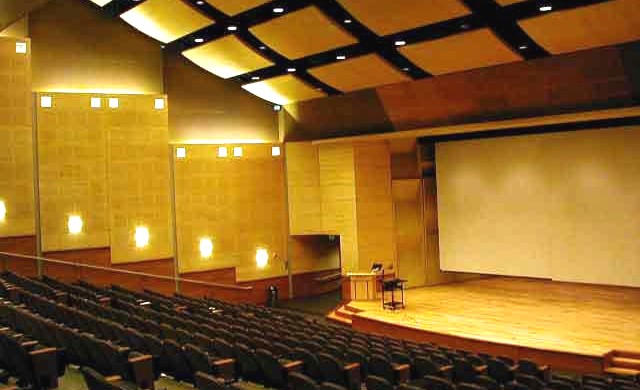
This is Kane Hall on the University of Washington campus where at 7:00 tonight Sollecito is set to be interviewed.
What was described in this excellent series by an Italian lawyer on four of the Porta a Porta shows continues to be the case. One perp slyly pushing another toward the fire, in an attempt to protect his own sorry ass.
On two levels the woolly-brained component of the Seattle media and the woolly-brained Knox-Mellas camp seem to have only the dimmest comprehension of the slow-motion train-wreck Sollecito has managed to create.
(1) Sollecito may continue to claim that he “saved” Amanda by standing by her when others urged not to, but as future posts here will show, he provably didnt, and in his book in a number of places he includes very incriminatory points about her.
(2) Provable lies in Sollecito’s book have already stirred up a hornet’s nest in Italy and his own father and his lawyers have backed off - right when RS and AK face one of the toughest appeals our Italian lawyers have ever seen.
Can Sollecito be expected to make things worse both for Amanda and for himself tonight? It may not be obvious to much of the audience, but our own bet is: for sure. Must-read posts in advance here and here and here.
And a must-read book. That narcissistic killer flaunted the system - and is now doing 33 years.


